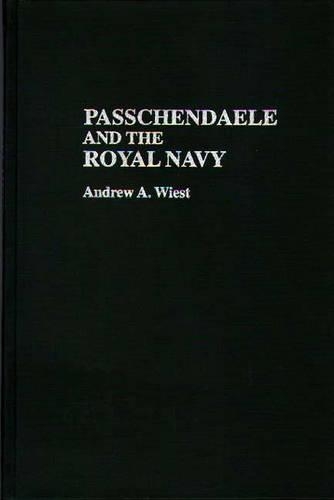
Passchendaele and the Royal Navy
(Hardback)
Publishing Details
Passchendaele and the Royal Navy
By (Author) Andrew A. Wiest
Bloomsbury Publishing PLC
Praeger Publishers Inc
23rd March 1995
United States
Classifications
Tertiary Education
Non Fiction
European history
First World War
940.431
Physical Properties
Hardback
232
Width 156mm, Height 235mm
567g
Description
There are two competitive views of Passchendaele and its commander, Sir Douglas Haig. One school contends that the battle was a very costly failure and that Sir Douglas Haig, the architect of the battle, was a blundering murderer. A second school of thought argues that Passchendaele was in many ways a success and that Haig learned much during the campaign and went on to put his learning to good use during the victorious offensive of 1918. This study removes some of the blame for the failure from Haig by examining the involvement of the Royal Navy in the planning and prosecution of the campaign. Documentary evidence demonstrates that the actions of the Admiralty were decisive in attracting the attention of the army to Flanders and in gaining approval for the battle itself. The Admiralty had a hitherto unknown effect on the prosecution of the battle. The fact that the British fought the battle for the wrong reasons and that the army on the coast waited while soldiers at Passchendaele died raises Passchendaele to an even higher plane of tragedy.
Reviews
"Wiest does a masterful job weaving the various threads of the campaign together. He goes into great detail concerning all the aspects of the eventual battle....The wealth of detail that Wiest provides is immense....The author makes excellent use of a wide range of primary documents in tracing the development of the battle....[A] valuable addition to the history of the First World War."-The Historian
This is an important work and recommended for any one interested in planning related to the British effort in World War I.-The Northern Mariner
Wiest does a masterful job weaving the various threads of the campaign together. He goes into great detail concerning all the aspects of the eventual battle....The wealth of detail that Wiest provides is immense....The author makes excellent use of a wide range of primary documents in tracing the development of the battle....[A] valuable addition to the history of the First World War.-The Historian
"This is an important work and recommended for any one interested in planning related to the British effort in World War I."-The Northern Mariner
Author Bio
ANDREW A. WIEST is an Assistant Professor of History at the University of Southern Mississippi.
